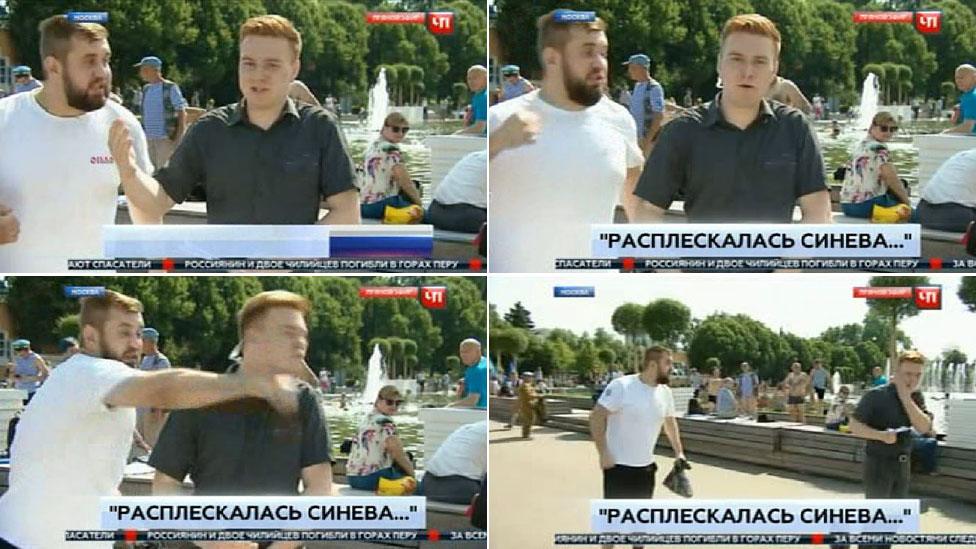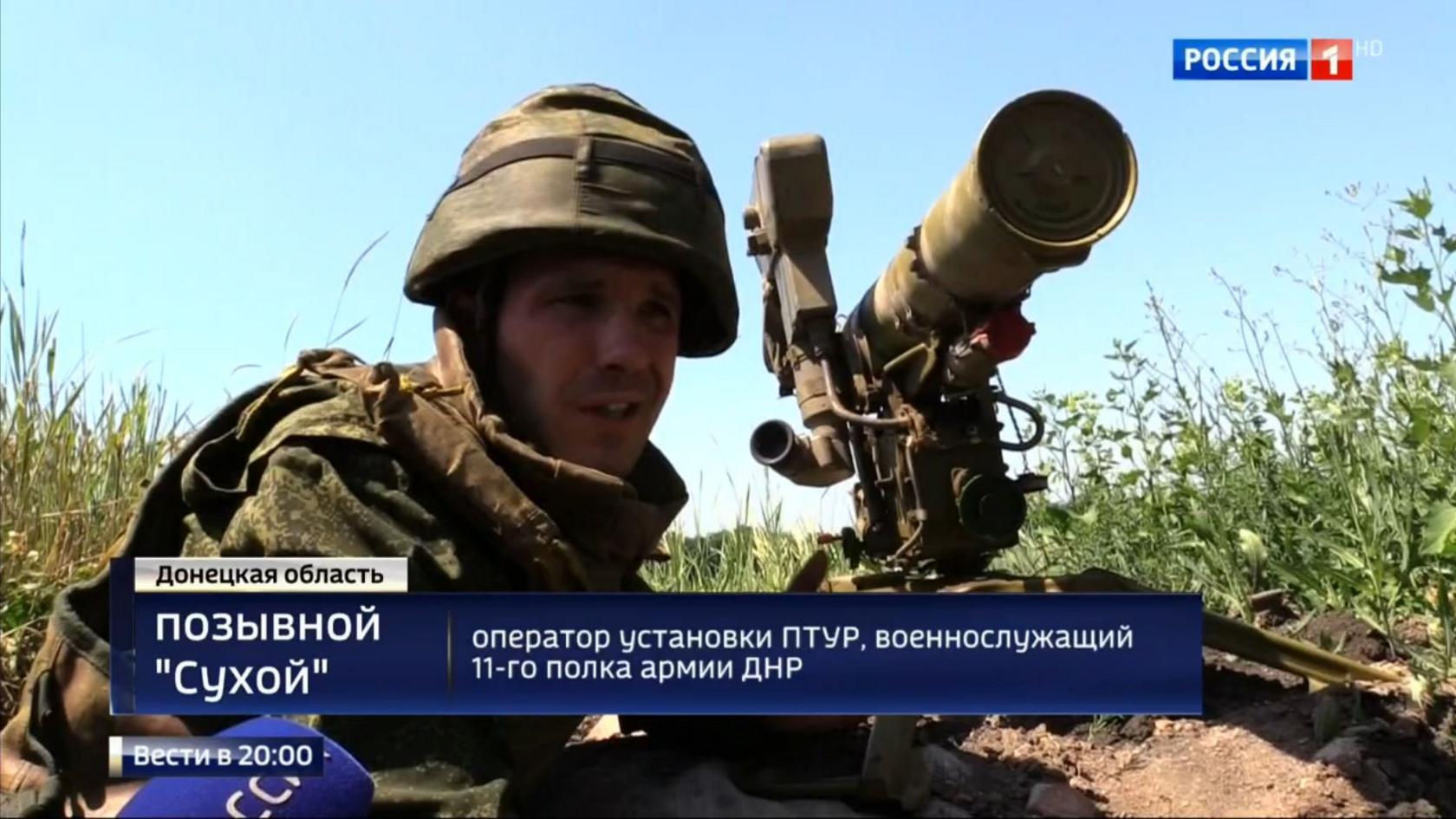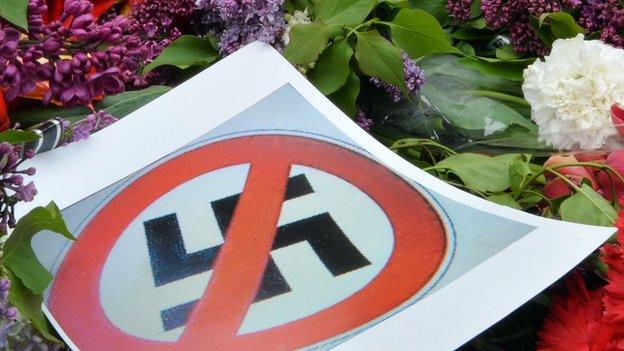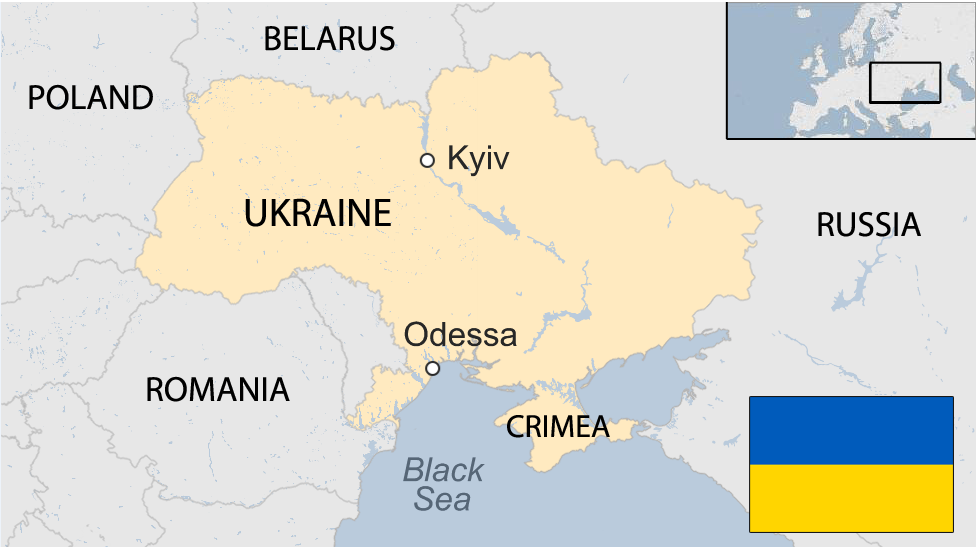Russian on-air attack sparks propaganda debate
- Published

Nikita Razvozzhayev appeared on TV again hours after being punched
An on-air attack on a TV reporter in Russia has sparked a debate on the impact of state propaganda.
Violence against opposition-minded journalists is nothing new in Russia, but this time around it was a correspondent working for one of the key pro-Kremlin channels, NTV.
The attack has been widely condemned, but some also noted that, having celebrated the use of military force in Ukraine, Russian TV now found itself on the receiving end - quite literally.
Praise for Russia's military might is a key topic on state TV, and is often complemented by harsh criticism of the government in Ukraine.
Nikita Razvozzhayev was delivering a characteristically upbeat report about Wednesday's Paratrooper Day festivities in Moscow's Gorky Park.
Seconds into the live despatch, an apparently drunk man staggered into shot, shouting, in between expletives, "We'll capture Ukraine!"
The man, dressed in a T-shirt bearing the logo of an eastern Ukraine separatist movement called Oplot, then punched Mr Razvozzhayev in the jaw after politely being asked not to interrupt the broadcast.
He was detained shortly afterwards.
Mr Razvozzhayev later hooked up with the studio after being discharged from hospital, saying that the punch "wasn't as bad as it looked".
While Paratrooper Day is a notoriously rowdy affair in Russia, Mr Razvozzhayev said he was "surprised" by incident.
The incident received prominent coverage on the main evening news. Russian TV decried the "outrageous assault", but at the same time all three main channels appeared keen to make sure it cast no shadow on the reputation of the country's highly-revered paratroopers.
They all said that the attacker had actually never been a paratrooper himself and NTV denied that he had any links with Oplot.
There was also no discussion of the man's threat against Ukraine in any of the main TV bulletins. State TV's Channel One merely said that the man "tried to say something", while the other two channels bleeped the phrase out along with the expletives.

Russian TV broadcasts frequent and uniformly positive reports about Kremlin-backed militants in Ukraine
Some Ukrainian news sites said the man had served in eastern Ukraine and published images they said showed him mingling with key separatist leaders.
Over on social media, there was widespread condemnation of the attack. "Who gave paratroopers the right to drink in public? Who gave them the right to party and brawl in parks with children every 2 August?" was the most-liked comment, external underneath NTV's Facebook post about the incident.
But others argued that NTV was partly to blame for encouraging jingoism and in particular aggressive feeling towards Ukraine.
"The correspondent has my genuine sympathy," wrote independent journalist Andrey Loshak, external, "but you can't disagree with this comment someone left on the NTV website: NTV got punched in its lying optimistic face by a thug that it had brought up."
In Ukraine, the incident was greeted with barely-concealed delight.
Yuriy Butusov, the editor of Ukrainian news website Censor said on Facebook: "A victim of propaganda showed a propagandist that his efforts to turn the Russians into half-wits are not in vain."
BBC Monitoring, external reports and analyses news from TV, radio, web and print media around the world. For more reports from BBC Monitoring, click here. You can follow BBC Monitoring on Twitter, external and Facebook, external.
- Published5 May 2015

- Published27 January
